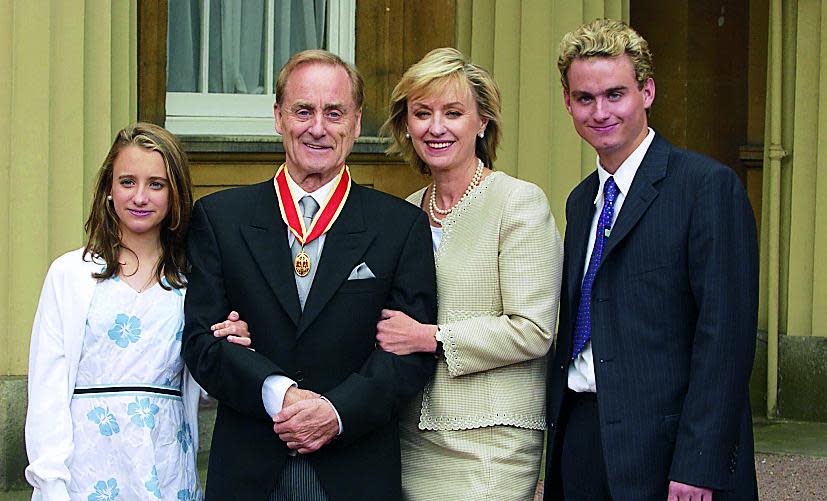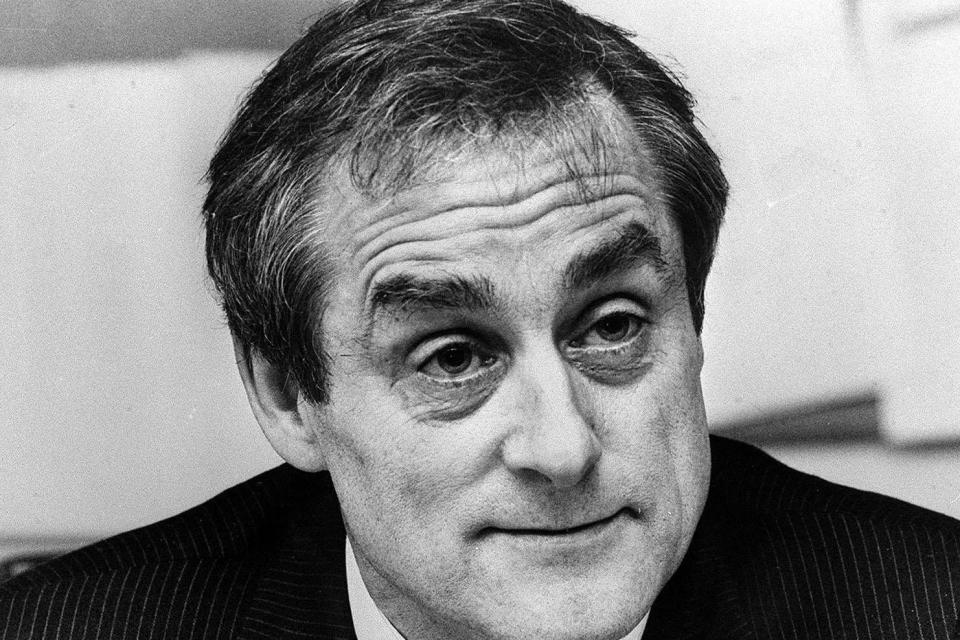Fleet Street legend Sir Harold Evans dies aged 92

Legendary Fleet Street figure Sir Harold Evans has died in New York aged 92, prompting a string of plaudits for his work.
The former editor of The Sunday Times and editor-at-large for the Reuters news agency died of congestive heart failure, his wife Tina Brown said.
Born into a working-class family in Manchester in 1928, Sir Harold began his career as a journalist at a weekly newspaper in Ashton-under-Lyne aged 16.
He later rose through the newspaper industry with roles including assistant editor of the Manchester Evening News and, after a stint in the US, as editor of The Northern Echo in Darlington, where he forged his reputation and led campaigns resulting in a national screening programme for cervical cancer and a pardon for a man wrongly hanged for murder.
From 1967 to 1981 he was editor of the Sunday Times and then went on to edit The Times, although his tenure there finished in 1982 after policy disagreements with its new owner Rupert Murdoch.

As editor of the Sunday Times in the 1970s, he founded the Insight team of investigative journalists who brought in scoops including uncovering the Kim Philby spy scandal.
During his leadership the newspaper also risked criminal prosecution under the Official Secrets Act to publish the diaries of former Labour housing minister Richard Crossman, and its coverage of Bloody Sunday still reverberates today.
But his most famous campaign was on behalf of the victims of Thalidomide, the drug which left hundreds of children with severe birth defects after it was given to their mothers during pregnancy.
Sir Harold fought a legal battle with the drug companies for years, eventually leading to victory in the European Court of Human Rights – which he described as “one of the most memorable days of my life” – and compensation for the victims’ families.
In 1984 he left Britain for America with his second wife Tina Brown and the couple went on to dominate the media scene in New York, where Ms Brown edited Vanity Fair, the New Yorker and Talk magazine.
Sir Harold was the founding editor of the Conde-Nast Traveler Magazine and was appointed president of the publishing giant Random House in 1990, where he acquired books including the autobiographies of General Colin Powell and Marlon Brando, and the political satire Primary Colors.
His own writing was also successful, including the best-seller The American Century, and in 1999 he became an American citizen – meaning his knighthood came in the Diplomatic List for services to journalism.
He had two children with Ms Brown, and three from a previous marriage which ended in 1978.
Sir Harold described journalism as his “basic passion” and was a firm advocate for accurate, truthful reporting.

He was given a knighthood for services to journalism in 2004 and received a lifetime achievement award at the British Press Awards for what the judges described as “a lifetime of honest reporting which has made him an icon of his trade”.
“Journalism is not easy. It’s the first rough draft.” he said.
“I don’t think you need to wait around until you have the definitive thing.
“You record what’s there; don’t delude yourself that this is the ultimate historical view.
“Attempting to get at truth means rejecting stereotypes and cliches.”
He was also conscious of the power of journalism and the media, saying: “The camera cannot lie, but it can be an accessory to untruth.”
“Propaganda is persuading people to make up their minds while withholding some of the facts from them.”
Tributes have meanwhile been paid by other journalists to the “inspiring” former Sunday Times editor.
Good Morning Britain host Piers Morgan described Sir Harold as a “witty, charming, fiercely intelligent man” and said the thalidomide scandal had “epitomised his crusading, campaigning, fearless style”.
He wrote on Twitter: “RIP Sir Harry Evans, 92. One of the all-time great newspaper editors.
“His stunning Thalidomide investigation when he ran the Sunday Times epitomised his crusading, campaigning, fearless style.
“A wonderful journalist & a witty, charming, fiercely intelligent man. Very sad news.”
RIP Sir Harry Evans, 92.
One of the all-time great newspaper editors. His stunning Thalidomide investigation when he ran the Sunday Times epitomised his crusading, campaigning, fearless style.
A wonderful journalist & a witty, charming, fiercely intelligent man. Very sad news. pic.twitter.com/HriNidaM7v— Piers Morgan (@piersmorgan)
Kevin Maguire, associate editor of the Daily Mirror, tweeted: “RIP Harold Evans, inspiring former editor of the Northern Echo and Sunday Times.
“Embodied the best of journalism incl at the ST exposing the thalidomide scandal.”
RIP Harold Evans, inspiring former editor of the Northern Echo and Sunday Times. Embodied the best of journalism incl at the ST exposing the thalidomide scandal.
— Kevin Maguire (@Kevin_Maguire)
Stephen J Adler, editor in chief of American news agency Reuters, said: “I am so grateful Harry Evans became my mentor and friend.
“All of us at Reuters are blessed to have worked with him and learned from him these past 10 years.
“His example will continue to guide us.”


